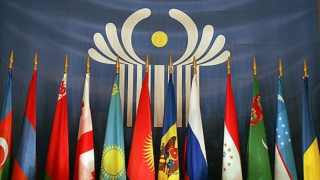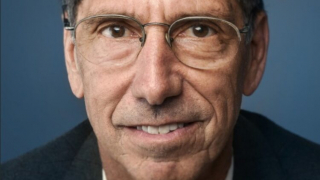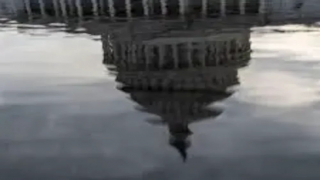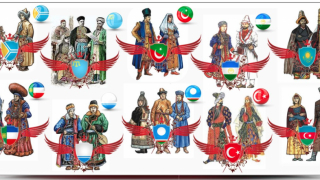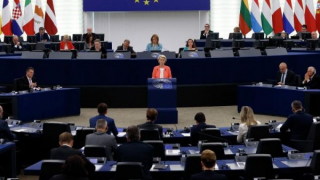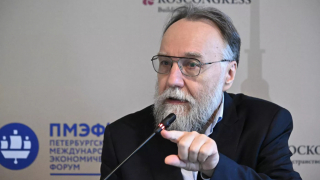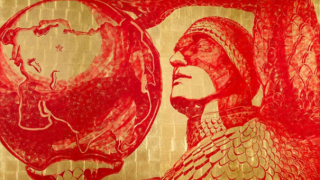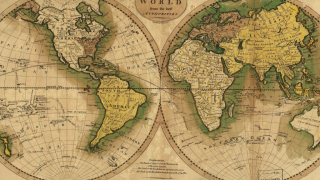UAE as a potential power pole
The modern world order is moving toward multipolarity, so many countries have a claim to be a pole of power and influence in the international arena. These days, the rapidly developing countries in East Asia and the Middle East are quite actively showing their ambitions. One such country is the United Arab Emirates. The UAE, thanks to its resources and active development of some industries, is already making an impact on the world community. The country's foreign policy is undergoing changes related to both the international situation and the increase in its capabilities.
The United Arab Emirates is a rather young state, founded in 1971 by uniting 6 of the 7 emirates of the Treaty of Oman (the 7th emirate joined in 1972), which were under the British protectorate. When the state was created, the emirates immediately became full participants in international relations, joining major international organizations: the UN, WTO, and some of their specialized institutions. The UAE's foreign policy was conducted according to the principles established by the state's founding president, Sheikh Zayed bin Sultan Al Nahyan. These principles remain the basis for the country's foreign policy, however, they change partially depending on changes in internal and external factors. The basic principles of policy are the principles of diplomacy, negotiation, and compassion. The UAE has become a state that has assumed obligations to neighboring countries in the Middle East region and the entire world community to ensure stability and security in the region. To achieve the success of these goals, the UAE intentionally contributes to the rapprochement of states and the maintenance of partnership and dialogue. Through this, the country is able to maintain an effective and balanced policy, thereby establishing ties with the entire world community.
At the head of all principles of UAE foreign policy is justice in relations between states and the need to observe the principle of non-interference in the sovereign affairs of other states. The UAE promotes the peaceful resolution of disputes and supports the efforts of international organizations to strengthen the international rule of law and compliance with the provisions of conventions and treaties.
Initially, after the creation of the UAE state, the main goal of the country's foreign policy was to create closer relations within the region, which, in principle, remains unchanged to this day. In addition to direct contacts with Persian Gulf countries, the UAE is an active member of multilateral regional organizations such as the League of Arab States, the Cooperation Council for the Arab States of the Gulf and the Organization of Arab Petroleum Exporting Countries. It is also a member of organizations that unite developing countries or Islamic states: the Organization of Islamic Cooperation, the Non-Aligned Movement, the Islamic Development Bank and other regional organizations. The UAE is working to resolve conflicts in the Middle East to strengthen stability in the Arab region. Events in Palestine, Iraq, Yemen, Afghanistan, and Pakistan are exemplary in determining the UAE's foreign policy intentions. In all these conflicts, the Emirates seeks to be a neutral party, acting as a mediator in the reconciliation of opposing countries or enlisting the help of other states to actively intervene in the conflict to resolve it as soon as possible, subsequently acting as a mediator in negotiations between hostile countries. This international policy remains successful at present, thanks to the UAE, most conflicts in the region end without critical consequences in relations between Persian Gulf countries.
However, the UAE's foreign policy changes its direction vector depending on the world situation and the country's capabilities. First, currently the Emirates, as a major hydrocarbon exporting country, is an active player in the international arena. This arrangement allows us to influence the international situation, which enables us to pursue an active policy to achieve our development goals. Second, the Russian special operation in Ukraine has changed the direction of the country's policy. The UAE remains neutral and is not exposed to anti-Russian sentiments propagated by Western countries, particularly the United States. By maintaining their principles of neutrality and insubordination toward more developed countries, they have worsened relations with the West, which could represent a shift in policy toward the East and improved relations with Asian countries. Third, the UAE's geographical location gives it control over the Persian Gulf, through which one of the world's largest trade flows. Across the strait, goods are delivered from Asia to Africa and the Middle East: because of this, the Emirates is an important point for the re-export of goods. Possessing significant economic and trade opportunities, the country has the potential to strengthen not only political but also economic ties.
All these factors indicate that the UAE's foreign policy has become more significant to the international arena, which is what the Arab state is beginning to use to pursue its goals, not obeying the more developed countries, promoting its vision of the current world order.
The country's focus on economic diversification has a major influence on the UAE's changing foreign policy. Initially, up to 90 percent of income was brought in from the hydrocarbon industry. To avoid a crisis if the market of the main sphere of state profit collapsed, the Emirates set the goal of developing other types of industry. The main task was to develop the renewable energy industry, since 90 percent of the energy used in the country was generated by burning natural gas. It was also to increase exports and reduce pressure on the state treasury. The UAE joined the Renewable Energy Council, where developed countries are located.
The UAE's renewable development plan aims to invest $163 billion in renewable energy by 2050, meet 75 percent of its domestic needs and, according to Prime Minister Mohammed bin Rashid Al Maktoum, Dubai could become one of the world leaders with fewer greenhouse gas emissions in the atmosphere. Two solar power plants have already been built in Dubai and Abu Dhabi, the second of which is one of the largest in the world. In terms of green energy foreign policy, the UAE actively participates in various forums, exhibitions, and conferences, supports innovative climate control solutions and various global energy initiatives, and presents a number of research projects and plans. In addition to "green energy," to diversify the economy, The Emirates is actively developing the transportation and tourism sectors. The UAE has some of the best transportation systems in the world due to its tourism industry, as the Emirates is considered a luxury tourist destination and an expensive transportation system has been put in place to offload traffic. The tourism industry is actively developing every year, and the flow of tourists is steadily growing, thanks to investments from other states. France has opened a branch of the Louvre in Dubai, and many tourist destinations have followed suit. Expensive infrastructure is being built for tourists: hotels, restaurants, amusement parks, shopping malls. Thanks to this area, the inflow of foreign capital is growing every year.
In the current international situation, the change in the UAE's foreign policy toward Western countries is particularly noteworthy. The Emirates and the United States have had successful partnerships since the 1970s. The main object of the relationship was America's provision of security in the Arab region. In addition to military assistance for conflict resolution in the Gulf countries, the states also sold additional arms and services to provide the UAE with a qualified military. Economic and scientific cooperation has been quite extensive between the countries, enabling the Emirates to develop. Partnerships have been established with the European Union in the same areas, and partnerships have been concluded with France to diversify the supply of weapons to the UAE army.
However, the Russian special operation in Ukraine has subjected the Emirates' relations with the West to serious contradictions. First of all, the UAE refused to support anti-Russian sanctions by not signing a U.S.-drafted UN Security Council resolution condemning Russia's actions in Ukraine, and chose neutrality, as in general most Arab countries do not intend to sever relations with Russia and continue to support cooperation. This was followed by the refusal of OPEC+, of which the UAE is a member, to exclude Russia from the organization and the lowering of hydrocarbon prices because of the cessation of supplies from Russia due to sanctions. This action is justified by OPEC+ members in such a way that policy does not affect the organization's decision, as the main task is to maintain an active hydrocarbon market. The U.S. in response cannot impose sanctions against the UAE, as a consequence of which there could be the termination of large contracts with U.S. companies for the supply of weapons and collateral damage in other areas of economic cooperation. The consequence of deteriorating relations could be the strengthening of the UAE's ties with Asian countries, particularly China and India.
On the opposite side are the UAE's relations with Russia. The development of relations has proceeded similarly since the formation of the Arab state itself. Until 2003, however, no significant progress in the relationship was identified. After that the relationship began to develop actively and reached a high level. The main similarity of the countries is the developed hydrocarbon sector, both states are world leaders in oil exports. The countries exchange technologies, develop their scientific potential, and attract foreign investment and manpower. In the economic sphere, the states have reached a high level of partnership, numerous agreements have been concluded. Of note are the 2012 and 2013 agreements: on the encouragement and mutual protection of investment; on the avoidance of double taxation. Both agreements cemented a close economic relationship and became the basis for a long-term partnership. The UAE is more interested in Russian capital and products, which also affects the Russian side: both government agencies and independent businesses. The Emirates is the largest economic partner in the Persian Gulf; many Russian companies are registered there or have a representative office. Politically, relations are also a great success. State presidents, in addition to meetings in summits of international organizations, meet in person. The main tasks are the joint development of the green energy sector and the preservation of a stable hydrocarbon market. Both sides also set themselves the task of maintaining security and stability for their states and regions. At present, in relation to the special operation in Ukraine, relations are not deteriorating. The UAE, as mentioned earlier, adheres to neutrality, but beneficial work continues in all other areas. Many wealthy Russians are currently in the Emirates, which is not only not rejected by the Arab side but leads to further investment.
Original column by Katehon Editorial Board
Translation by Costantino Ceoldo



